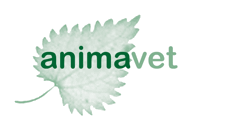
animal health consulting
Hendra: why not just go ahead and vaccinate?
Christine King BVSc, MANZCVS (equine), MVetClinStud
Table of Contents
Risks
Benefits
Final thoughts
Final thoughts (for now)
I began this article by saying that I'm writing so that I'll know what I think — so that I can sort through my many and varied thoughts on the subject and make some sense out of them, for myself as much as for anyone else. I started out thinking that I was conflicted about the Hendra virus (HeV) vaccine. Now I realise that I'm not (or no longer) conflicted; I simply don't have a blanket recommendation for its use.
Weighing the risks against the benefits, I came to the conclusion that there is a place for this vaccine in responsible horse care. However, I don't think that place is anywhere near as large as the vaccine manufacturer would have us believe.
And I respectfully disagree with the position of the Australian Veterinary Association, which supports mandatory vaccination of horses against HeV:
"Mandatory vaccination can be achieved through government legislation or through mandatory programs implemented by industry. Both may be necessary to achieve the level of vaccination required to protect the community."
.. and with their position on not treating sick, unvaccinated horses until HeV infection has been ruled out by a HeV exclusion test:
"Sick, unvaccinated horses must have Hendra virus infection ruled out by the collection of blood and nasal, oral and/or rectal swabs by the attending veterinarian. Until results of Hendra virus exclusion testing are received, horses should receive only such care that can be provided with minimal contact with the affected horse, and diagnostic procedures will similarly be limited. This is in order to comply with the requirements of workplace health and safety laws, and to minimise the risk of transmission of the disease to people. It may result in suffering that could have been avoided by current vaccination status of these animals against Hendra virus."
In other words, "Too bad, so sad. You should have vaccinated your horse."
I am not an "anti-vaxxer" (a person who is opposed to vaccination on principle); rather, I'm a judicious vaccinator, basing my decisions on the available science and on the outcome of the risk vs. benefit equation for each individual horse. To me, that's just good medicine.
I was relieved to learn that there are two HeV antibody tests available for use in horses, although I'm frustrated that the HeV titre test is so expensive.* It would be wonderful if that particular test became more affordable, or if a third option with semiquantitiative results was available, so that we could be tailoring vaccination programs (e.g., timing of boosters) to each individual horse and circumstance.
UPDATE 04 July 2024
* An alternative to costly titre testing, called a microsphere-based immunoassay (MIA), has recently been validated against the gold-standard VNT. In a study involving Thoroughbred mares and foals in the Hunter Valley (NSW), the MIA was shown to be a useful proxy for titre testing. Once it's commercially available, it should be much cheaper than titre testing because it does not require the use of live virus (as the VNT does). The results are reported as median fluorescence intensity (MFI), an MFI of 4,000 being approximately equivalent to a VNT of 32, and therefore expected to be protective against HeV infection.
With either current test, in horses with no detectable HeV antibodies it would be wise to vaccinate those living in high-risk areas, such as near known flying fox roosts or 'camps', and on properties where flying foxes are frequent visitors. The same goes for horses who travel extensively for work or breeding, including to areas where flying foxes may be active.
The Australian Department of Agriculture, Water and the Environment monitors flying fox activity throughout the country and publishes maps of known flying fox camps as part of the National Flying-Fox Monitoring Program.
***
Thus far, all efforts to mandate HeV vaccination of horses have failed and the decision whether to vaccinate or booster your horse against HeV is entirely yours to make. If you are choosing not to vaccinate or not to continue vaccinating your horse(s) against HeV, I encourage you to add annual HeV antibody testing to your horse's preventive healthcare program so that you're better able to make good management decisions and can provide proof of immunity if needed.
I hope this article has helped by sharing the available science with you and going through the various risks and benefits in detail. I'll continue to keep an eye on the research and update this article as new information comes to hand. Stay tuned...
© Christine M. King, 2021, 2022. All rights reserved.
Last updated 04 July 2024.
to article main page